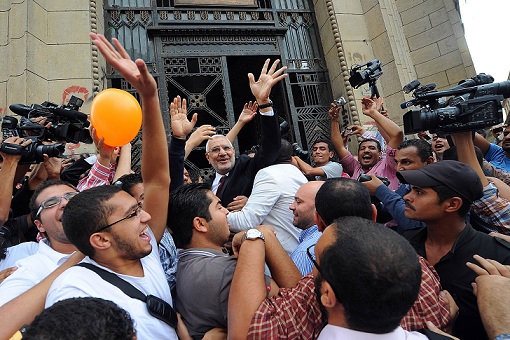Associated Press
CAIRO: Egypt will play a key role in a string of meetings in Pakistan on Sunday for leaders of key Muslim Sunni nations, but Islamic scholars denied that there is an effort to form an alliance against Shia Iran.
Pakistan s foreign ministry spokeswoman Tasnim Aslan denied the conference aims at forming a Sunni alliance.
It is not for Sunni countries, they are Islamic countries, she told Al-Jazeera, according to its Arabic translation of her comments broadcast Saturday by the channel on another show.
Pakistan will host a meeting of foreign ministers from seven Muslim nations on Sunday to discuss how to resolve the Israeli-Palestinian conflict and bring peace to Iraq and Afghanistan.
Media reports in the Arab world suggested, however, that Pakistani President Gen. Pervez Musharraf aims to establish up a Sunni alliance to confront rising influence of Shia Iran in the region.
This is not designed to isolate any country, Erdogan told the Qatari-based Al-Jazeera television network Saturday. It should not be taken from this [point of view], he said in the interview recorded earlier Saturday in Istanbul, Turkey.
Musharraf has toured the Middle East and Asia to garner support for a Muslim initiative to stem the deepening conflicts that are destabilizing parts of the Islamic world.
The foreign ministers of Egypt, Indonesia, Malaysia, Turkey, Jordan and Saudi Arabia will gather in the Pakistani capital, Islamabad, on Sunday to lay the groundwork for a summit of Muslim leaders at an unspecified date in the holy city of Mecca, Saudi Arabia.
The goal of the summit is a new initiative to address the grave situation in the Middle East, in particular the Palestinian issue, and for harmony in the Islamic world, the Pakistani foreign minister has said in a statement.
Musharraf visited Saudi Arabia, Egypt, Indonesia, Malaysia, Turkey and Iran in recent weeks to seek common ground for his initiative. He did not invite Iran or Syria for the meeting in Islamabad on Sunday.
Erdogan said Iran and Syria will be invited in a later stage.
Musharraf has not announced concrete proposals to stabilize the Middle East, and it remains unclear how his ideas might relate to the efforts of the so-called Quartet – the US, the European Union, Russia and the UN – to revive its road map plan to resolve the Israeli-Palestinian conflict.


